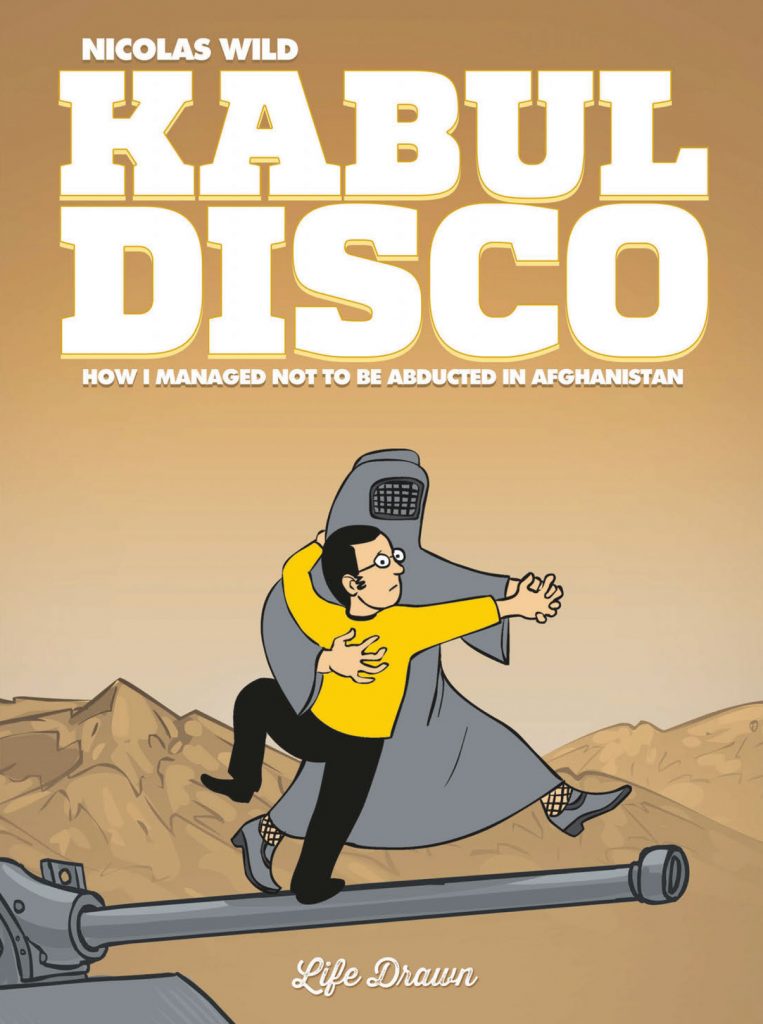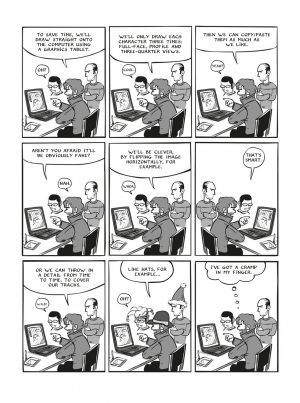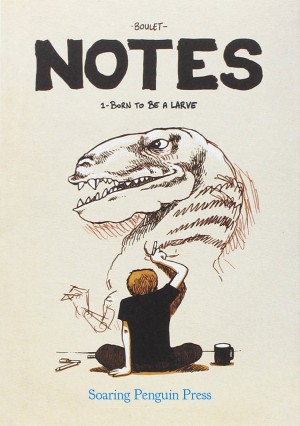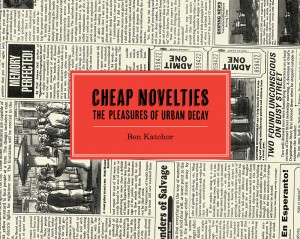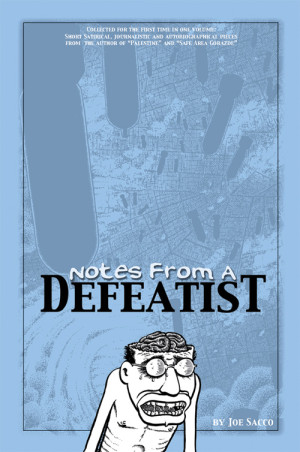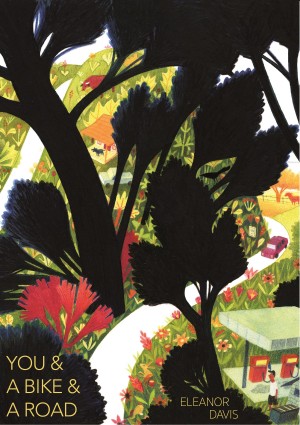Review by Ian Keogh
In 2005 Nicolas Wild was a cartoonist bereft of inspiration, couch surfing with a friend suffering no such blocks, and short of rent when he’s passed an advert for a cartoonist in residence. It’s in Kabul, capital of Afghanistan, a geographically inhospitable state. While having a very basic knowledge of the country, Wild is woefully unprepared, warned on a stopover in Ajerbaijan that he’ll stay longer than planned and become an alcoholic.
The project he’s hired for is to produce a comic explaining the Afghan constitution to children. The revised version was adopted after the 2004 overthrow of the Taliban, and each chapter of the comic is to explain one of the constitution’s 162 articles. Wild runs through earlier versions after introducing the people he’ll be working with, a small company run by three directors with very different personalities.
Guy Delisle and Joe Sacco are the gold standard for comics reportage from uncongenial places, and that’s because they immerse themselves in their environment, so the disappointing aspect over the first half of Kabul Disco is Wild doing very little of the sort. Even given he’s working to a very tight deadline, constantly being reinforced by his fellow creator, Wild’s attitude is one of only extremely reluctantly taking any opportunity, and while this may be true to his character, it doesn’t make for a page-turning set of experiences. After finishing the constitution comic, Wild has settled in, and the company need a graphic designer for other projects, so extend his employment. However, so often over the first half of Kabul Disco when it seems Wild might be edging toward more interesting matters than diarising his interactions with work colleagues, he slips back into default.
A stay in Herat marks a turning point for both Wild and his story, with the subtitle topic introduced and levels of interest raised as life becomes more difficult for foreigners. Wild is inconvenienced while learning how dangerous life can be for Kabul’s prominent figures. When he’s is co-opted into taking photographs for an army recruitment project it’s in an area where the possibility of abduction still hasn’t entirely receded, and the scenery is littered with the debris of previous battles. This understatement works well, and leads into a sequence about the cynical truth behind what’s being sold abroad as free and democratic elections. There’s a satirical, knowing tone from the start, which sometimes backfires, although Wild recognises this, and highlights incidents of foot in mouth.
If Wild’s recollections take a long time to meet with expectation, there’s no problem with the cartooning. The skills needed to render a comic understandable to Afghanis also work well in reducing a panel to its essence, and the drawing is tidy and expressive, as seen by the sample page giving away some tricks of the trade. Wild’s gift for capturing a personality is also noteworthy, with Wild’s perpetually grumpy co-worker is a treat, as are the company bosses and the unapologetic American Republican.
Less emphasis on the job and more on life in Afghanistan would have made for a stronger graphic novel. Much of the book’s first half could have been cut to little detriment and would have resulted in a stronger story of more widespread interest. When that content finally arrives, Kabul Disco begins to shimmer.
